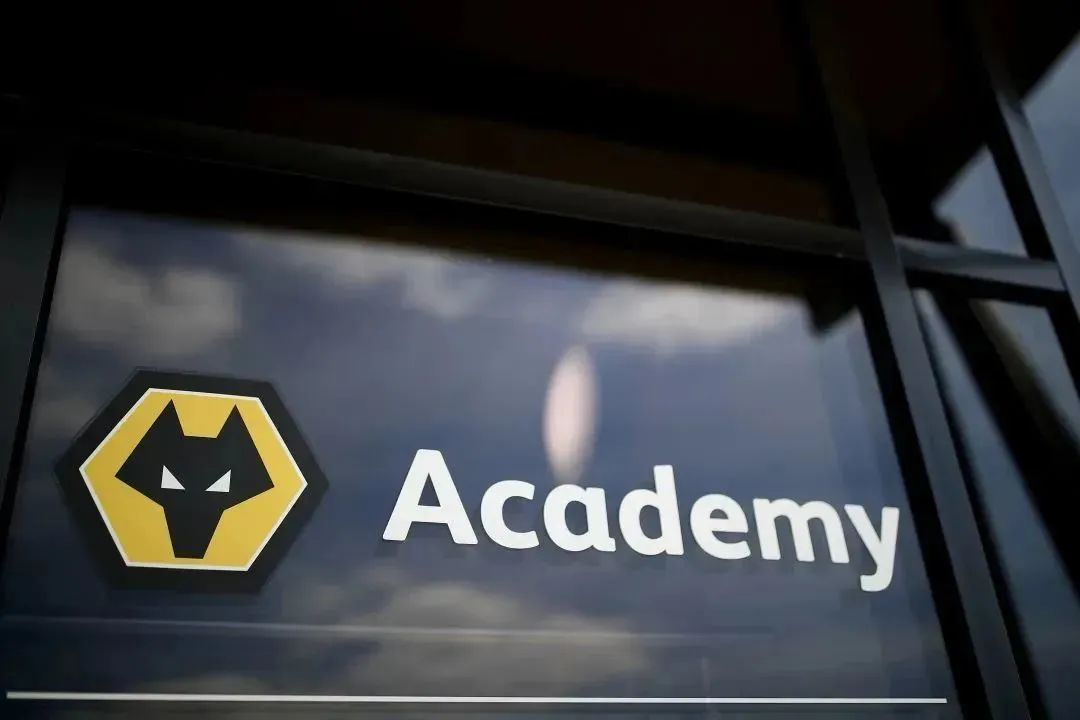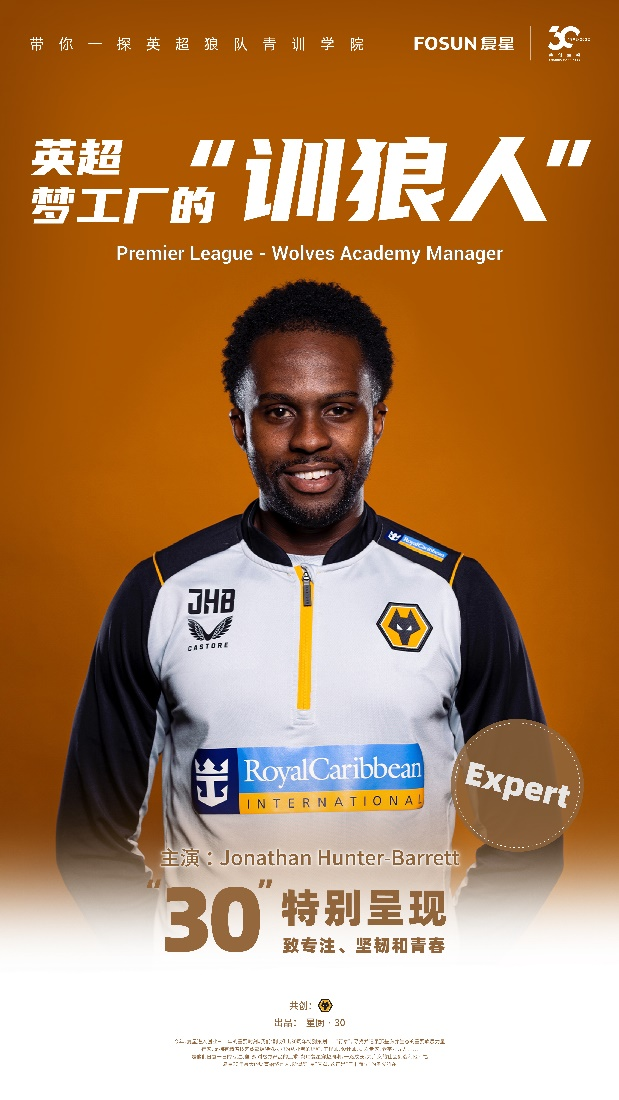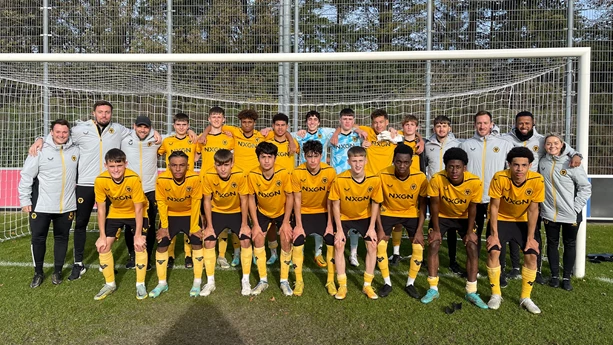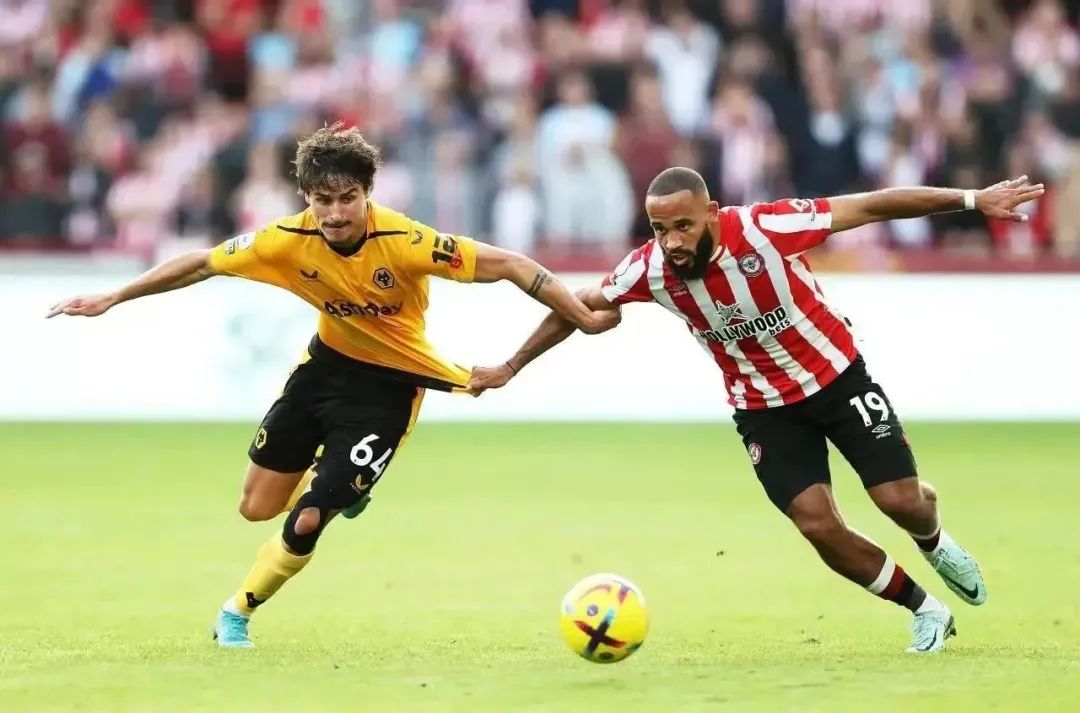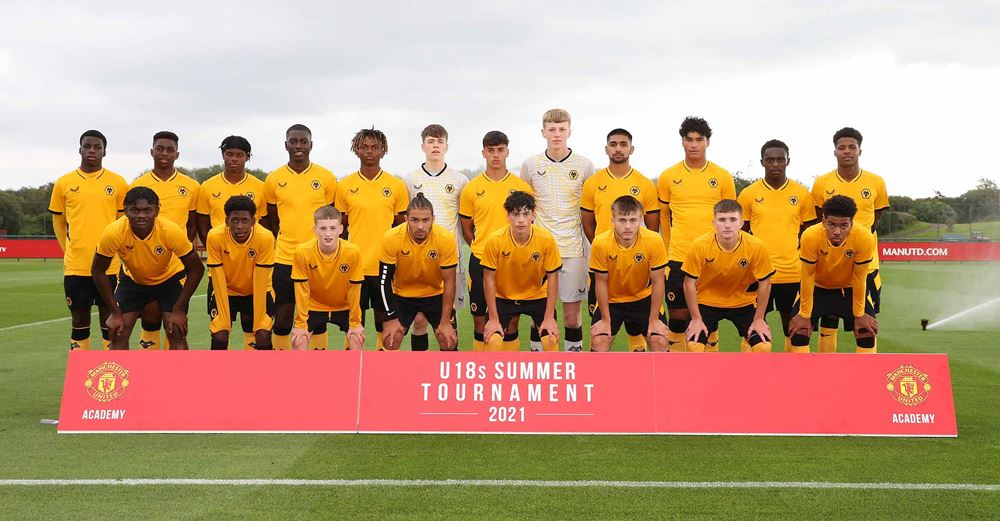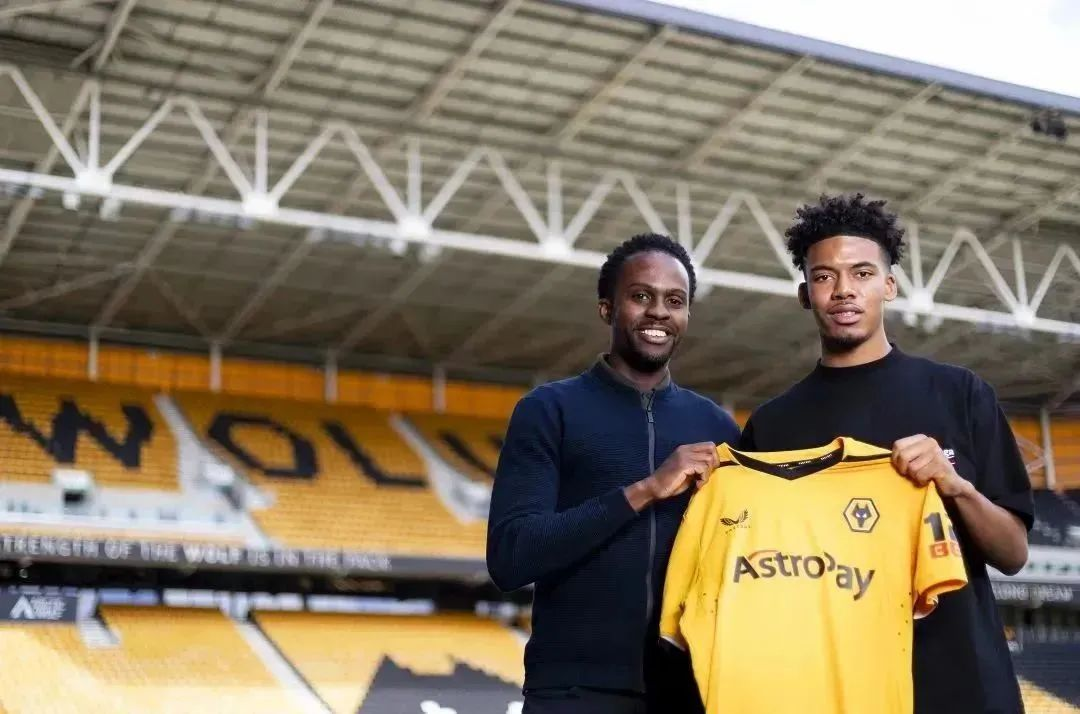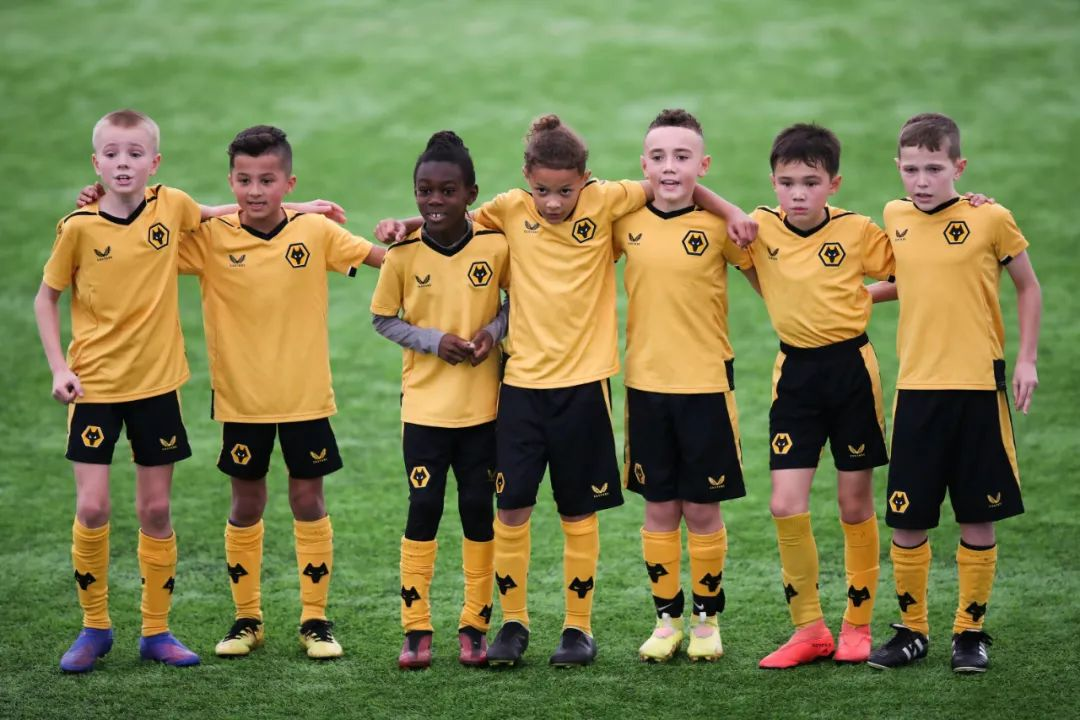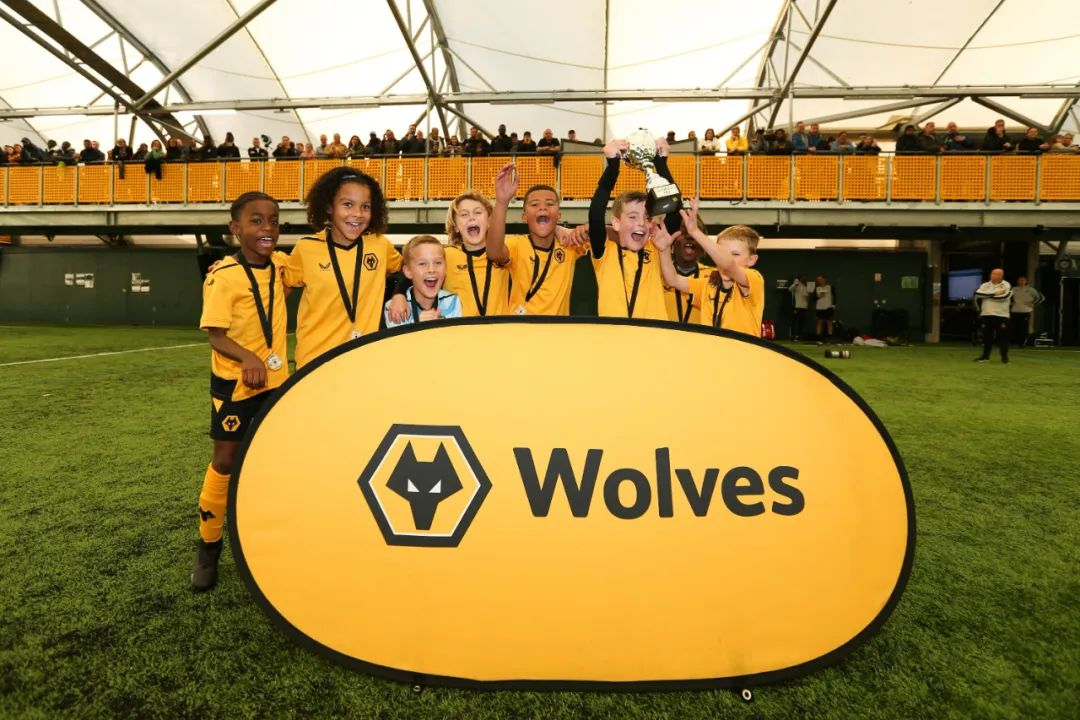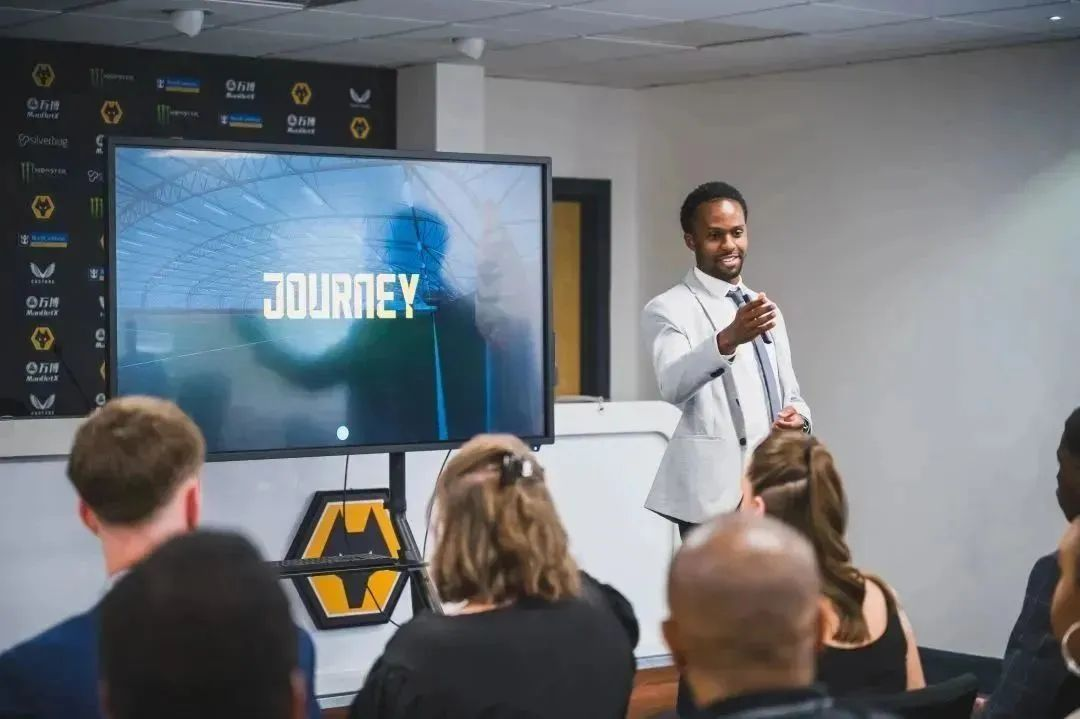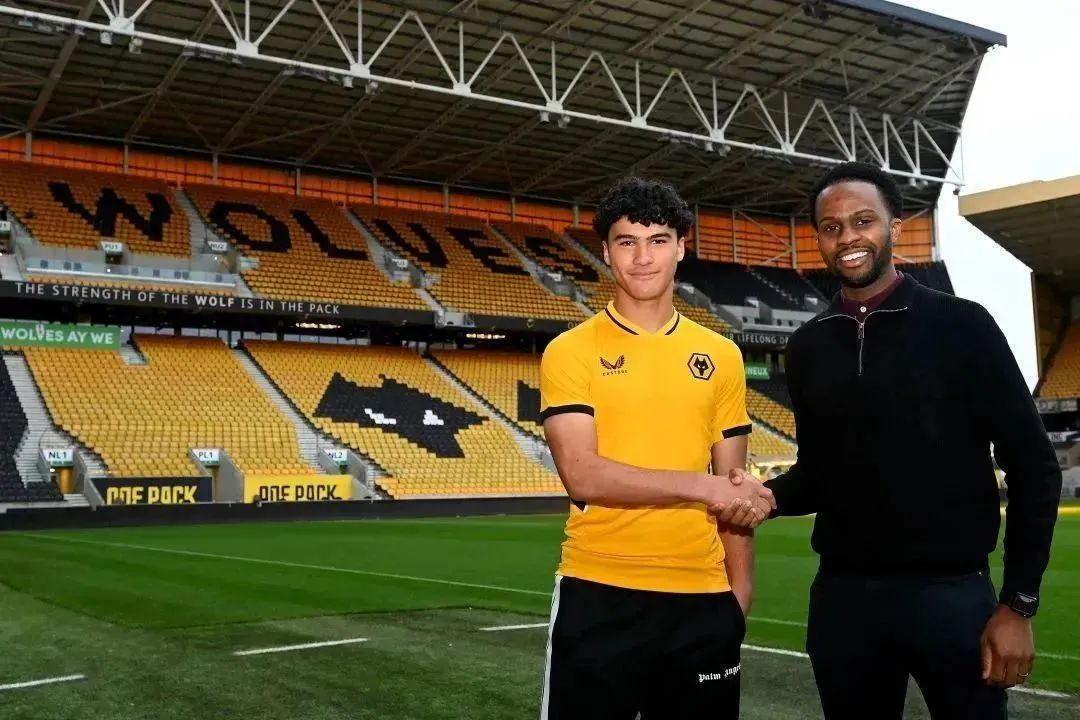The expert in this issue is a ‘backstage crew’. Jonathan Hunter-Barrett is the academy manager at Wolverhampton Wanderers Football Club (Wolves) who has more than 15 years of coaching experience. Wolves is no stranger to fans of the Premier League. This is the 11th time that Wolves has players participating in the FIFA World Cup. Wolves has also produced many star players in the past. Behind the glory, these star players have spent years in training. As the academy manager at Wolves, Jonathan serves the team diligently behind the scenes, including the initial recruitment of players, personal training, the graduation of Wolves Academy. He has witnessed batches of rising football stars moving to a bigger stage.
As the top five football leagues in the world, the Premier League is considered one of the "dreams" of many players. This year, five Wolves players have been chosen to represent their national teams at the FIFA World Cup Qatar 2022, including Ruben Neves, Matheus Nunes, and Jose Sa (Portugal), Raul Jimenez (Mexico), and Hwang Hee-chan (South Korea). In addition, Robbie Keane, Joleon Lescott and other star players in the Premier League are graduates of the Wolves Academy.
There are only a few teams in the Premier League that have well-known colloquial names like Wolves.
Wolverhampton Wanderers Football Club is commonly known as Wolves.
The title of "Premier League team" is familiar to many people, but it is a hard-won title for this team which was founded in 1877.
In May 2003, Wolves beat Reading and Sheffield United to gain promotion to the Premier League, becoming the 38th team in Premier League since its establishment. In the following ten years, Wolves experienced two relegations and two promotions. After a year in the Premier League, Wolves was relegated to the English Football League (EFL) in 2004. In 2009, Wolves won the EFL championship and got promoted to the Premier League. It was relegated to the EFL again in 2012 and was relegated to third tier EFL League a year later. Since Fosun’s takeover in 2016, Wolves returned to the Premier League in 2018 and has gained a firm foothold in the top league, creating countless of unforgettable moments on the field.
Thanks to its youth training programme, Wolves has produced many talents. Established in the 1930s, Wolves Academy has a mature and complete youth training system, which covers professional coaching, medical care, sports science, psychology, education, data analysis, etc. It has teams from U7 to U21, covering multiple age groups.
Wolves Academy remains one of the six academies in England awarded an unconditional three-year certificate by the Football Association, tied with Chelsea and Manchester City. Young players who come here usually have high expectations, as do their coaching staff.
Jonathan Hunter-Barrett is the academy manager at Wolves. With more than 15 years of coaching experience, he is mainly responsible for the development of youth players. In order to better understand the youth training of the Wolves Academy, we conducted an interview with him.
Q: What are the characteristics of the Wolves Academy?
A: We take our boys away on tour to quite a lot to different countries. We’ve been to China in the past, we’ve been to Dubai, we’ve been across Europe and we take them to tournaments in this country as well. We try and provide them with lots of different life experiences alongside the football, but we do that through the travel.
The purpose is to give the players bespoke opportunities to develop and learn. It puts them under pressure.
They’re exposed to these experiences every week. The games programme is very varied. We play against top teams – Manchester United, Liverpool, Manchester City, Chelsea, Arsenal, Tottenham – in lots of different competitions. The under-18s league is divided north and south so we play more northern teams, but in the cup competitions we get opportunities to play in the south. The under-21s play in the best league against the best players, so that’s the exposure those players are getting. The schoolboys have these experiences every week as well.
Q: How many players are there in each age group now? How many players are recruited each year? What are the recruiting criteria?
A: At present, we have new players under the age of nine joining every season, and there are about 14 to 18 people in each age group. Before entering our trial programme, we have scouts to look for specific candidates, or sometimes recruit players from other clubs. We don't want to miss any potential stars, so we don't set limits on the specific age and number of recruits. Potential matters the most.
Q: What kind of players are considered potential players? What is the deciding factor? Can you share some examples?
A: Personality is the key. In addition to physical fitness and strategies, internal drive and an "always learning mentality" are what we always look for.
Internal drive is critical because it determines whether a person can control his emotions. Focus is also very important. We can guide and nurture them in these aspects, but they must be internally motivated to be trained. At the end of the day, personality determines whether they can go on this career path.
For example, Jimmy Storer who has shown great improvement in the above areas just signed a professional contract recently. Then there's Joe Hodge and Hugo Bueno, who are players that young players look up to because they maintain a great work ethic and an attitude of excellence.
Q: What is the assessment system for players of different age groups? Which age group is their prime time?
A: We set up a positional profile for each player, which will continuously record and follow their development in the academy to evaluate their condition and potential. The academy also has its own courses, and players must follow the course requirements and be assessed on game day.
As they get older, it becomes more and more challenging to stay. Like a pyramid, it gets smaller as you go to the top. Generally speaking, U18 and U21 players are in their prime time, because in terms of age, their physical fitness level is the closest to that of the first team players.
Q: How do you see your current role in the youth academy?
A: This job is very demanding and challenging. It not only requires professional knowledge in the game, it also requires "strategic thinking", that is, a full understanding of the club itself, and understanding of the kind of players we want to recruit. People skills, and forward thinking and planning are also required for this job.
Q: Can you give us a brief overview of what your role is at Wolves?
A: I’m mainly responsible for two aspects: identity – in the way that we play, in the way that we try to behave, and then also players and making sure that our boys are supported with the development throughout the programme.
Q: What about “junior players”? How old is the youngest player?
A: Generally, they are recruited around the age of six to eight and then get officially signed at the age of nine. If they meet the training standards and pass the assessment, the club will offer them the first formal professional contract at the age of 17.
In fact, parents are most concerned about whether their boys are being taken care of at the Wolves Academy. There’s no guarantees for anyone when they come into our building, as early as nine, that you’re going to be a professional footballer at Wolves. But what we can guarantee is that you’re going to have an excellent experience, an excellent opportunity to actually learn, play with elite players and get developed by elite coaches in an environment and have experiences that you wouldn’t have had elsewhere.
Q: Have you ever thought about being a professional football player yourself?
A: Yes, but at the age of 15, I realised that I was not capable to be a professional football player.
But I love football. My first job in football industry was being a volunteer at Walsall Football Club when I was 10 years old. At that time, I was very happy to be able to work with players and discovered that I was capable and good at helping them, in terms of travel and daily life. Being able to realise my value in the field I am interested in is one of the main motivations that made me choose this career.
Reece Devine at Manchester United F.C., Remeao Hutton at Swindon Town F.C., Chem Campbell in our Wolves first team, etc. are players that I've helped. I feel that my job is valuable as they enter the professional team. Therefore, I am willing to seek self-improvement to be better at my job. For example, while taking practical courses for UEFA B and UEFA A licenses, I also studied for a master's degree in sports management, hoping to do a better job in the constant self-challenge and improvement.
Q: Your work schedule is very hectic. How do you achieve work-life balance?
A: It’s very challenging, but I’m doing what I love, which is why I never dread going to work in the morning. Cultivating young players is not like an ordinary 9-to-5 job. It requires full dedication. For me, the main motivation has always been being able to help people achieve what they love.
Q: What are your hopes for the next 12 months here at the Academy?
A: The next 12 months I would like to see us continue to grow. We’re still transitioning out of Covid, so that’s also been a massive challenge for us over the last two to three years and I’d like to see us continue our tradition really of giving young players an opportunity to get challenged, to get developed and then, ultimately, play for our first-team.
Generally speaking, a standard football team has 23 players, of whom 11 are on the field and the rest are substitutes. These players who set foot on the field of the top league not only enjoy the glory brought by victory, but they also have to bear the crushing moment after defeat.
Of course, these are not something that everyone can experience. Wolves Academy's young players who are passionate about football are striving to play on the field. As their coach and mentor on this journey, Jonathan is not only a witness, but also a guide to spread the football culture.
